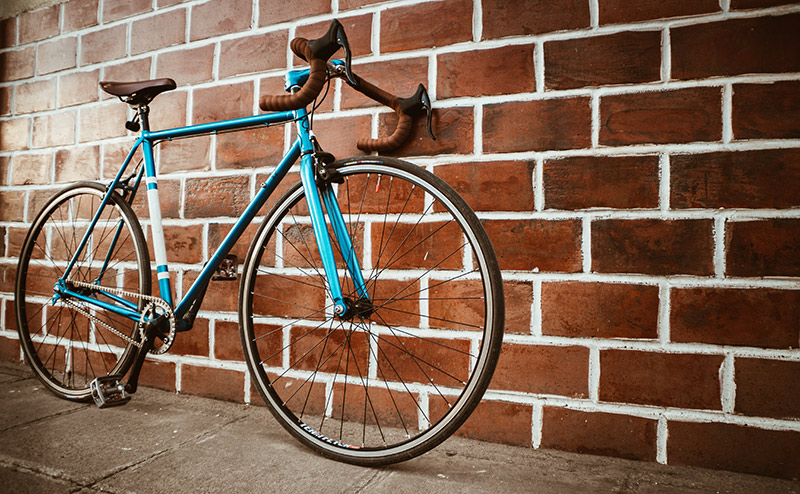UNB students explore the impact of the pandemic on active and public transportation among vulnerable populations
Author: UNB Newsroom
Posted on May 20, 2021
Category: UNB Saint John

Ten students from the University of New Brunswick in Saint John have completed a report on how the COVID-19 pandemic has impacted access to both active and public transportation for the city’s most vulnerable populations.
“Moving through the city: Grassroots experiences with active and public transportation in Saint John during the COVID-19 pandemic” was completed as an experiential learning requirement for a fourth-year political science course taught by Dr. Hepzibah Muñoz Martínez. It examines the barriers that vulnerable populations have faced while attempting to access transportation throughout the pandemic.
Key population groups for the study included newcomers, essential workers and people living in rural areas and low-income priority neighbourhoods. While walking was identified as the dominant mode of transportation for those from high-priority neighbourhoods, essential workers and newcomer women mostly used public transportation. Many people using public transit faced barriers associated with access (i.e., cost, long wait times and reduced capacities during various recovery levels), and walkers cited poor sidewalks as a definite barrier.
The report will be made available to various groups to help them better understand, and ultimately serve, their clients. Given that many marginalized people feel so disconnected and disempowered from decision-making opportunities, participating in this type of data collection gives them a voice.
Sarah Lunney, a fourth-year bachelor of arts student and co-investigator on the project, believes that experiential opportunities will serve her well as she continues on with her MA at UNB next year.
“I got the chance to not only design a research project but put it into action and see it through until the end. Not only did we learn how to create a successful research study, but we also saw how much time, energy and work goes into it.
“From my own experience, I know arts students often feel confused over what they’ll do with their degree,” she says. “Having opportunities such as this helps students put their degree into our community’s context and see how your education can benefit the people around you. Being able to learn in class via lecture format is great; however, having the opportunity to learn in class, then following up with field work in the community lets you see first-hand how these issues are present in our community and how we can make solutions work.”
As a third-year bachelor of arts student hoping to work in policy development after graduation, co-investigator Katie Herrington felt that the course positively impacted her community.
“The work we did this term was significant, invaluable and an important aspect of learning as you’re able to see how the concepts you've studied can apply to the real world,” she says.
“Of all of my courses so far, this one has been the most meaningful and significant not only to my professional development, but also my social development. What I and my fellow students learned over the course of a few months will never be forgotten as we eventually graduate and move into our future careers. I'm so grateful to Dr. Muñoz Martínez for her knowledge, teaching, insights and support for this project.”
“This course added so much value to my education,” she adds. “I'd encourage all students to take at least one course during their degree that offers experiential learning, if possible, to further their academic, professional and social development.”
Hannah Thorne is a fifth-year BBA student, graduating this spring with a double major in marketing and human resource management. She is also a co-investigator on the project and continuing on with her MSc in digital marketing strategy this fall.
“This experiential learning project was one of my most impactful experiences during my time at UNB Saint John,” she says. “It pushed us out of our comfort zones, challenged us academically and allowed us to gain hands-on experiences we otherwise would not have had in a traditional academic setting. In addition, it fostered a meaningful impact in Saint John, providing a platform for community members to have their voice heard.”
“Experiential learning has the potential to help students see first-hand the value and impact of their work in our communities,” says Dr. Sarah King, director of experiential education at UNB. “I commend Dr. Muñoz Martínez and her students for this exceptional work.”
“Course-based and applied research activities like this are an important example of UNB’s commitment to providing every student at UNB, in every faculty, an experiential learning opportunity before they graduate,” says Dr. King. “The expertise and knowledge of our UNB faculty and students is making a difference in our communities every day, and I hope we will see even more opportunities like this for students in the coming semesters.”
Other co-investigators on the projects include Lachlan Campbell, Dayle Chambers, Cassandra Evans-Ketch, Joshua Goguen, Lukas Keating, Ben O’Neill and Demi Wangyal.
The report is available from the Global Health New Brunswick Initiative.
#OnlyHere, UNB continues to provide unique experiential education opportunities for students, allowing them to make a difference in their community.
Media contact: Angie Deveau
